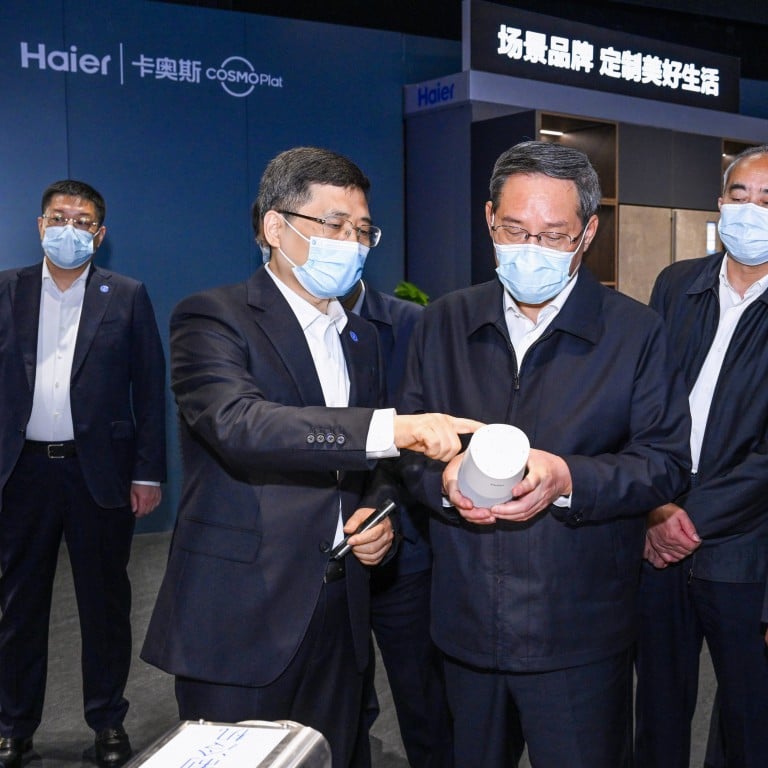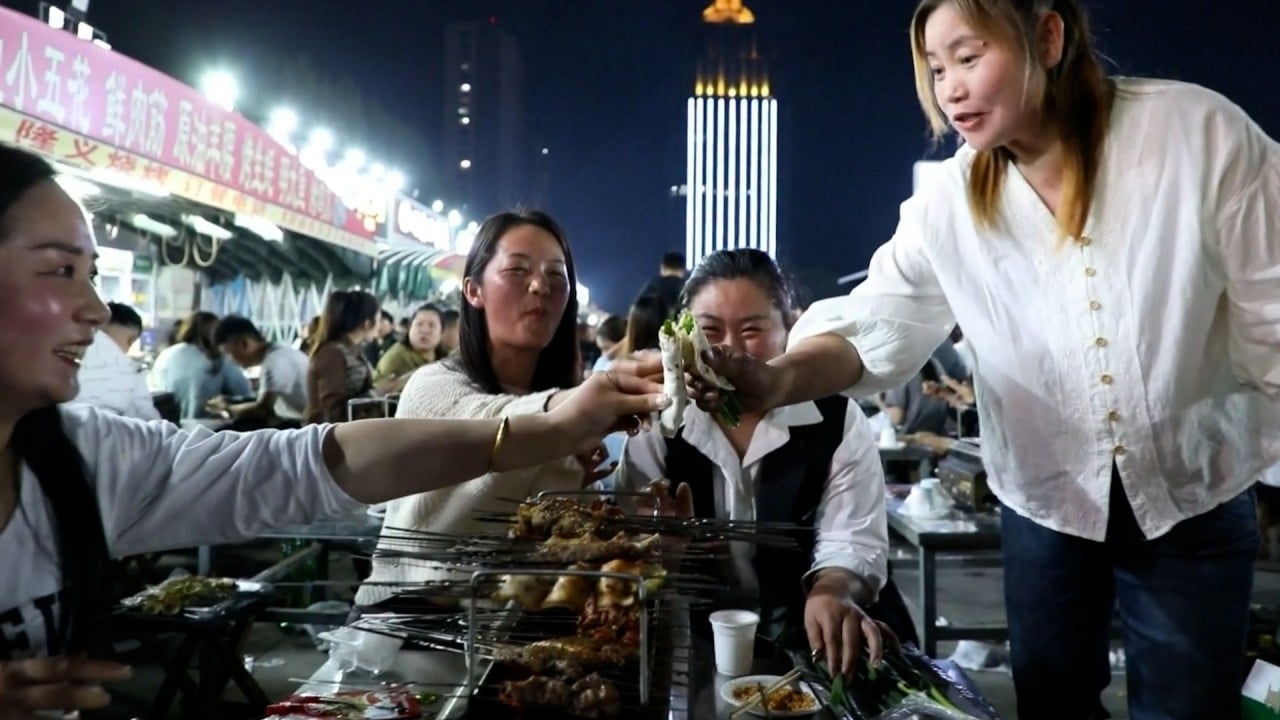
China’s deluge of weak economic data prompts pointed calls by Premier Li Qiang on inspection tour
- For new-energy vehicles, China will ‘optimise purchase and usage policies’ to further tap the market and drive consumption, especially in rural areas, Li says
- Comments come on the premier’s trip to Shandong province that wrapped up on Friday after visits to large firms
China’s leaders have their hands full as they try to quell a cacophony of cries among private entrepreneurs, foreign investors and ordinary citizens whose collective confidence in the Chinese market continues to be tested following recent releases of lower-than-expected economic data.
To that end, Premier Li Qiang’s two-day inspection tour in the eastern province of Shandong this week offered some insight into what solutions the authorities will employ.
While details and specifics remain scarce, he said such efforts aim to boost household spending and export orders. And purchasing policies for new-energy vehicles will be improved to help boost their consumption potential, particularly in rural areas.
“More targeted measures are needed to expand domestic demand and stabilise external demand, so as to promote a sustained economic rebound,” Xinhua quoted Li as saying during his trip, which ended on Friday. “We need to take more deterministic steps to hedge against various uncertainties, and do our best to get the best results.”
‘Explore and innovate,’ Beijing says as it lets internet platforms off leash
China’s No 2 political figure, known for his pragmatism in boosting economic growth, visited leading automotive firms, new-energy-vehicle dealerships, and electronics manufacturers, as well as home-appliance makers such as Haier and Hisense.
Shandong is China’s third-largest provincial economy and a major base for advanced manufacturing, which outperformed in the first quarter with 5.2 per cent growth.
The deluge of weak data was a key reason for Japanese investment bank Nomura cutting its prediction for China’s 2023 economic growth to 5.5 per cent from 5.9 per cent. Meanwhile, many other banks have joined the chorus of calls for further monetary easing or fiscal support in the coming months.
Authorities are rolling out electric-vehicle charging stations in rural areas to boost domestic demand for the vehicles, as a lack of charging equipment has been constraining the sector’s growth.
“There will be a big market for new energy vehicles. We’ll optimise purchase and usage policies, and accelerate the construction of charging infrastructures,” Li said.
The city which saw a 73 per cent monthly increase in tourists over the past month as it was deemed China’s “outdoor barbecue capital”.
Many Chinese cities, including Shanghai and Shenzhen, have relaxed rules to allow hawkers and street vendors in designated areas – in line with efforts to address job and income issues.
“[We] have to accelerate the development of new foreign trade business models, make greater efforts to attract and utilise foreign investment, and find ways to stabilise our international market share,” Li added.


